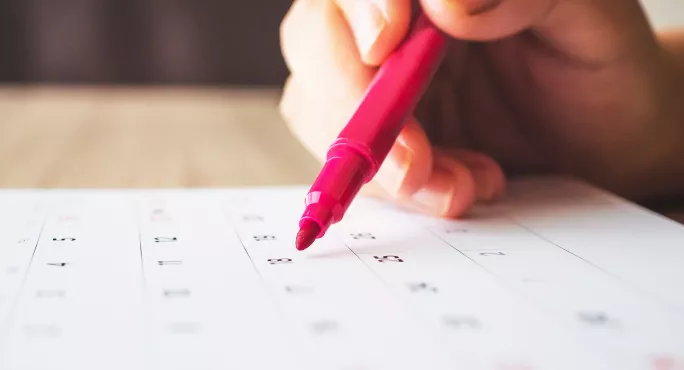Sats week: key test dates for 2025

May marks the start of a busy period for Year 2 and Year 6 teachers, with optional KS1 and compulsory KS2 Sats tests being taken up and down the country.
Below you’ll find everything you need to know about when the various tests will take place.
- Sats week 2025: key dates
- Key stage 1 Sats dates
- Key stage 1 Sats papers
- Key stage 2 Sats dates
- Key stage 2 Sats papers
- Key stage 2 teacher assessment
When are Sats in 2025?
Sats week 2025 for KS2 pupils begins on Monday 12 May.
Key stage 1 Sats dates
The KS1 test period runs throughout May 2025 and schools can choose when they set the tests.
From 2024 the KS1 tests are now optional. Schools will continue to report teacher assessment levels, which can be informed by the school’s own assessments or the optional KS1 Sats tests or a combination of both.
The new Reception Baseline Assessment (RBA) has replaced the KS1 Sats for judging progress made during primary school.
Unlike the KS1 Sats, the RBA data will be “black boxed”, which means it will not be publicly shared. We are still waiting for details on the method for how the data from the RBA will be used to measure progress.
Key stage 1 Sats papers
There are six tests for pupils to sit: two reading papers and two maths papers, plus two English grammar, spelling and punctuation papers.
The reading tests are designed to assess pupils on their comprehension skills and vocabulary.
The maths tests, meanwhile, focus on pupils’ knowledge of mathematical operations, their mathematical fluency, their ability to solve problems and their reasoning.
The optional KS1 Sats are not strictly timed. Teachers can also use their discretion to give pupils breaks during the tests.
- Reception Baseline Assessment: all you need to know
- What is the multiplication tables check?
- What is the phonics screening check?
Key stage 2 Sats dates
The KS2 tests are timetabled from Monday 12 May to Thursday 15 May 2024.
At KS2, the tests are timed and although the majority of pupils will complete the test without a break, teachers are able to give pupils breaks once they have begun if they experience fatigue.
Pupils with specific needs may have access arrangements to assist them in the tests.
Key stage 2 Sats papers
Monday 12 May 2025
English grammar, punctuation and spelling papers 1 and 2
Pupils will sit one grammar and punctuation paper, and one spelling paper.
The grammar and punctuation paper is a mixture of multiple-choice and short-answer questions.
The spelling paper requires the pupil to listen to their teacher as a transcript is read and spell out the missing words in their answer booklet.
Tuesday 13 May 2025
Reading
The reading paper requires pupils to read a booklet that contains three extracts. They must then answer questions that test them on their comprehension.
Wednesday 15 May 2025
Mathematics papers 1 and 2
Paper 1 is on arithmetic, and pupils are not permitted to use a calculator.
Paper 2 is on reasoning. and pupils are not permitted to use a calculator.
Thursday 15 May 2025
Mathematics paper 3
Paper 3 is also on reasoning, and pupils are not permitted to use a calculator.

KS2 Teacher assessment data
As well as sitting the above tests, all pupils must undergo a teacher assessment, with data submitted to either the Standards and Testing Agency or their local authority.
Writing
Teachers will make a decision on the writing of a pupil and whether they are working at a pre-key stage level or towards the expected standard, or at the expected standard or at a greater depth. This judgement will be based on the work a pupil produces during Year 6.
Every year a small percentage of schools are selected for writing moderation. If a school has been selected to have its writing marks moderated by the local authority, it will receive notification in May. Moderation visits will take place over a three-week period in June 2025.
Science
Teachers will make a decision on the science ability of a pupil and whether they are working at the expected standard. This judgment will be based on the work a pupil produces during Year 6.
Find out exactly what teachers should assess.
The deadline for submitting teacher-assessed data is Friday 27 June 2025.
How to help pupils to prepare for their Sats
Find a range of teaching resources designed to help pupils prepare for their tests:
Sats results 2025
Sats results will be released to schools in July next year. Find out all you need to know about Sats results 2025.
For the latest education news and analysis delivered every weekday morning, sign up for the Tes Daily newsletter
topics in this article



